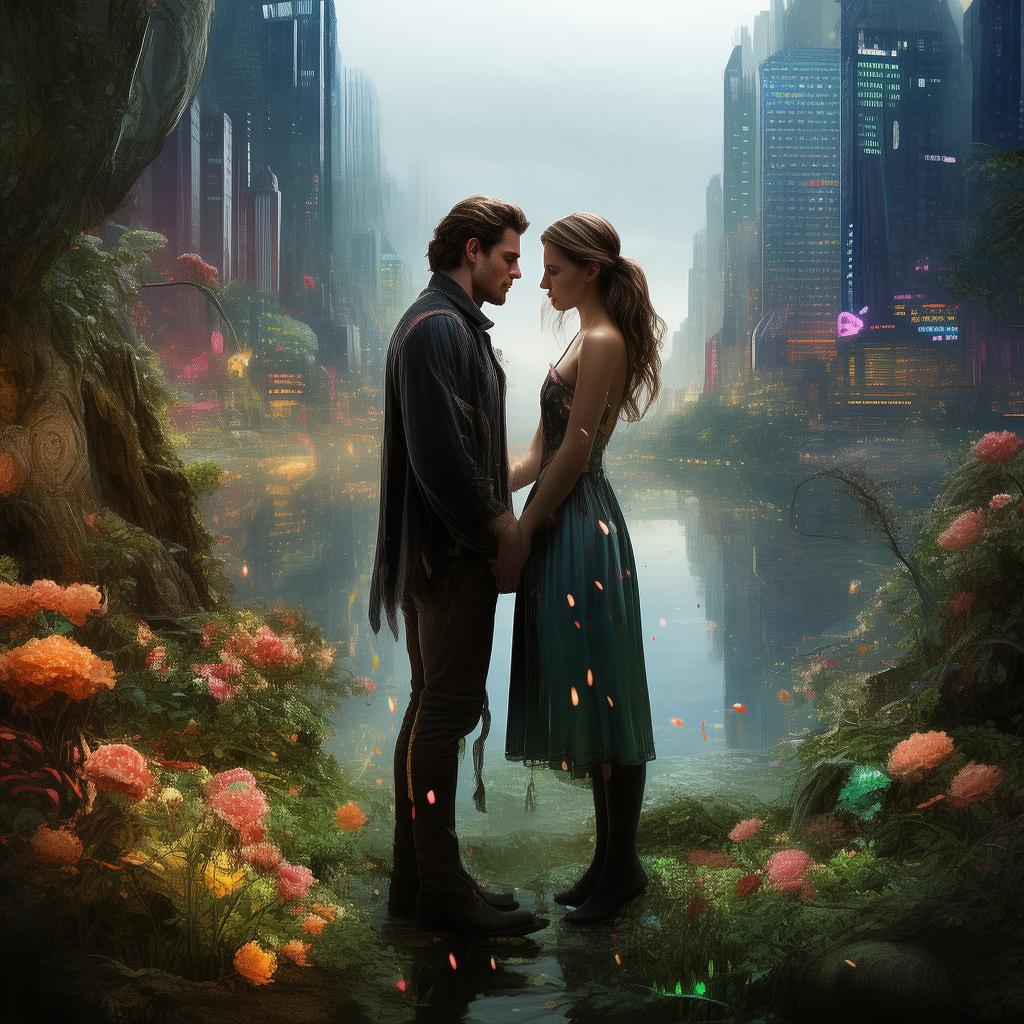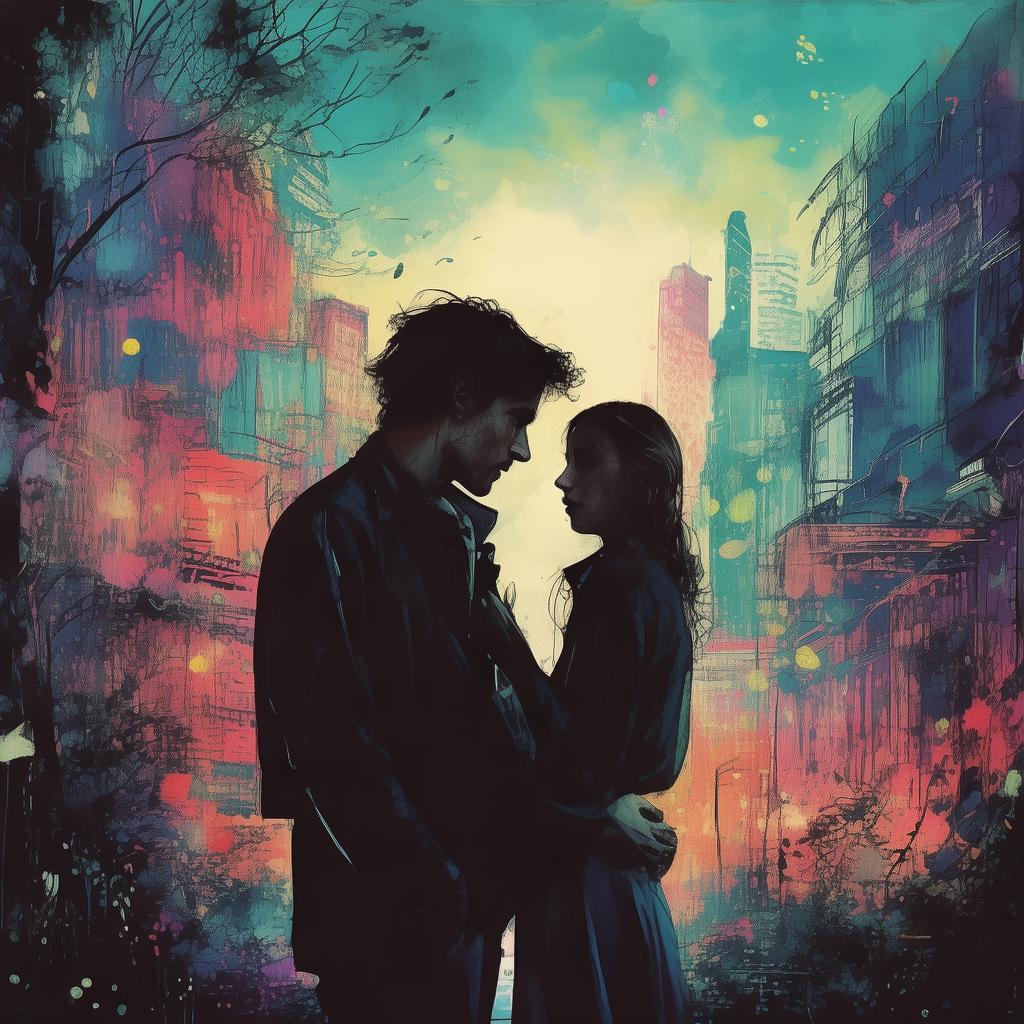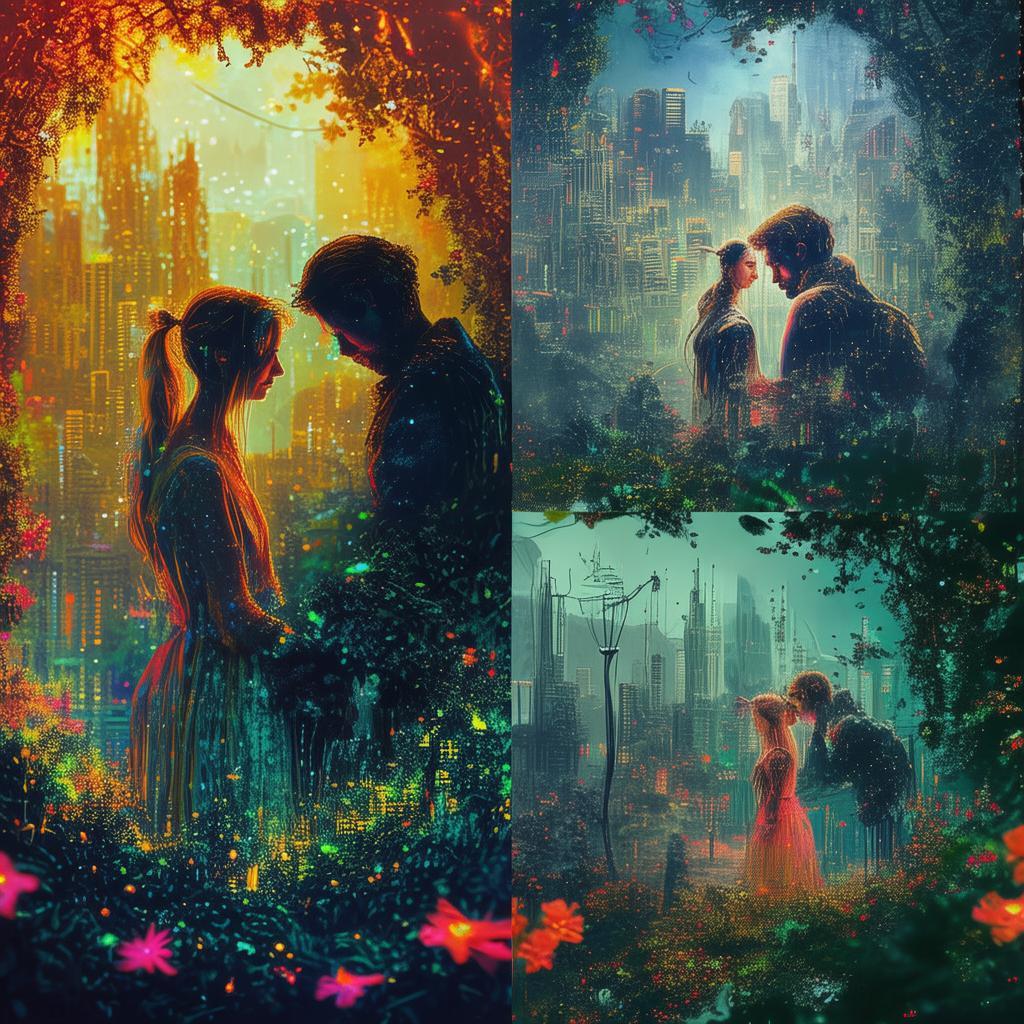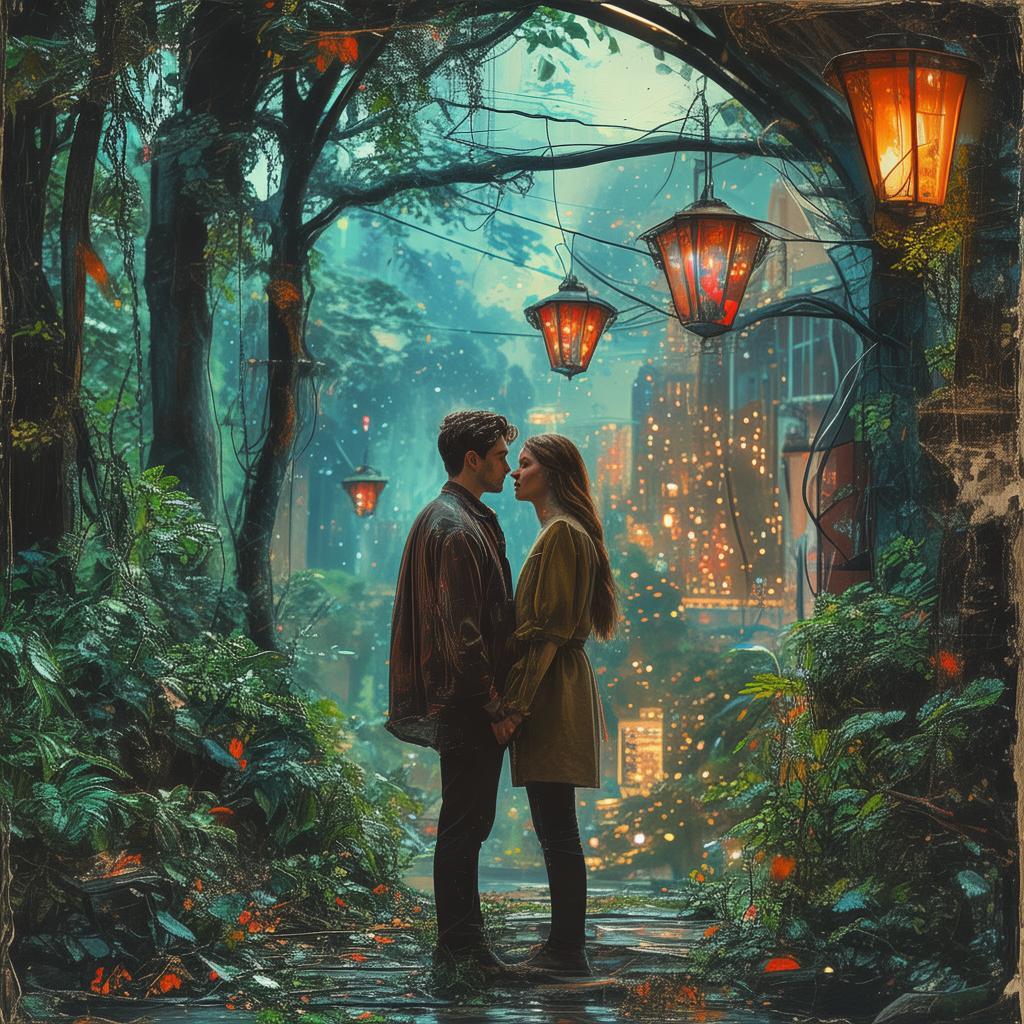The Emperor's Love Letter: A Wedding in the Ink
In the heart of the ancient and opulent city of Jing, where the emperors ruled with an iron fist, there lived a young artist named Ling. Her talent with ink was unparalleled, and her works were prized beyond the walls of the palace. Yet, her heart was as ink-black as her finest brushstrokes, for she had never known love.
The emperor, a man of many faces and fewer hearts, was a master of manipulation. His court was a web of intrigue, and his decree was a stroke of genius. He announced a marriage of convenience between his son, the Crown Prince, and a young noblewoman, Hua, to strengthen the alliance between their families.
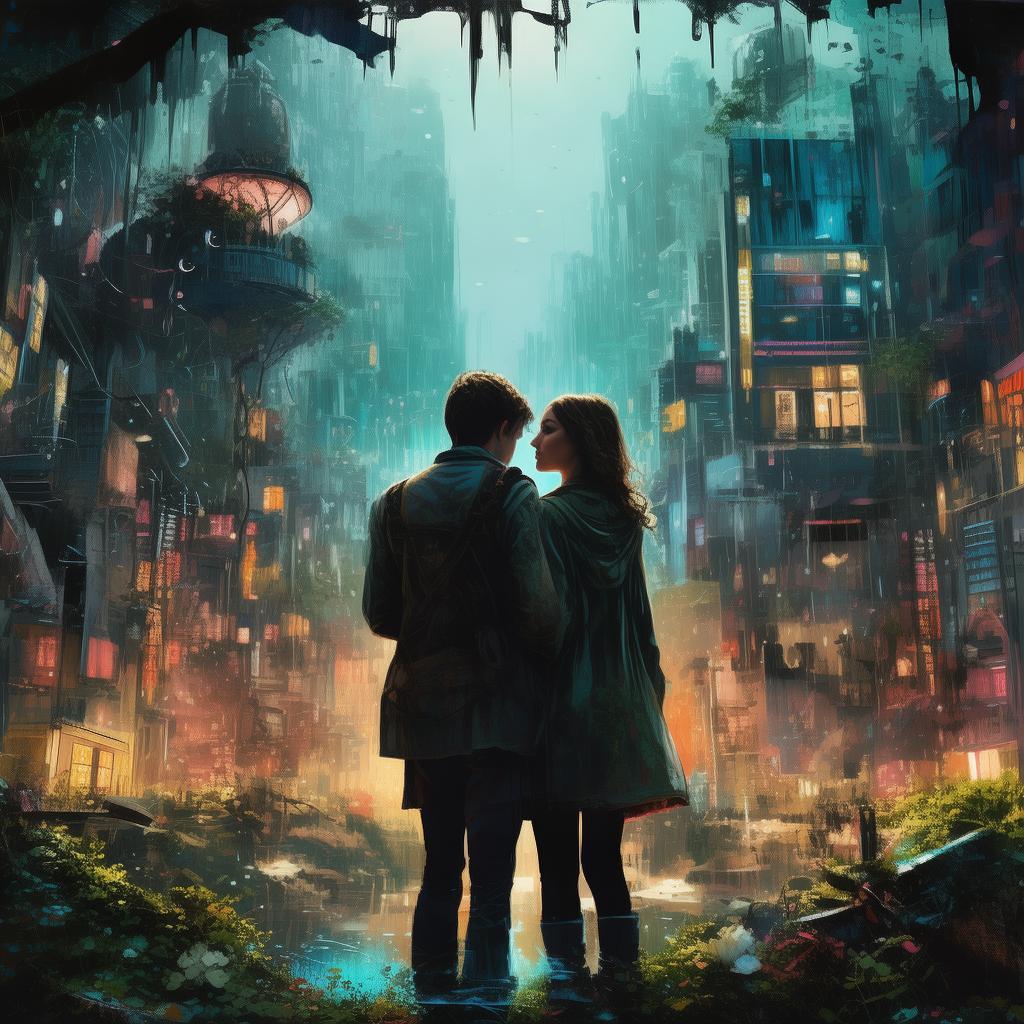
Hua, a woman of intelligence and spirit, was not one to be easily swayed. She had heard whispers of the emperor's son, a man who had never spoken of love or desire. Her heart was heavy with the thought of a life bound by duty rather than love.
The marriage was set for the following spring, but in the weeks that followed, a mysterious love letter began to circulate. It was written in the finest ink, and its words were as delicate as the finest silk. The letter spoke of a forbidden love, a love that defied the emperor's will and the expectations of the court.
The letter was discovered by Ling, who was intrigued by its beauty and the depth of emotion it conveyed. She was determined to find the author, believing that love was the greatest mystery of all.
Ling's investigation led her to Hua, who had also received a copy of the letter. They were both captivated by the words, and soon, they found themselves drawn to each other. Their meetings were clandestine, their words spoken in hushed tones, and their love was as forbidden as the letter itself.
As the wedding day approached, the emperor grew suspicious. He ordered his most trusted spy, a man named Jing, to uncover the truth behind the love letter. Jing was a master of deception, and he soon discovered that the letter was indeed a love letter, written by Ling for Hua.
Jing reported back to the emperor, who was both amused and angry. He ordered the wedding to proceed, but he also decreed that the marriage must be a loveless one. Hua and Ling were to be separated, their love forbidden and their union a lie.
The wedding day arrived, and the grand hall of the palace was filled with the sound of music and laughter. The emperor watched from his throne, his eyes sharp and calculating. Hua and the Crown Prince exchanged vows, their faces masks of duty and decorum.
As the wedding feast began, Ling approached the emperor, her heart pounding with fear and hope. She handed him the love letter, revealing her authorship. "Your Majesty," she said, her voice trembling, "this letter is a testament to the love between Hua and me. We ask for your permission to be together, for love is the greatest bond of all."
The emperor's eyes narrowed, and he looked from Ling to Hua. He had always been a man of power, but now he faced a choice. He could maintain control and enforce his decree, or he could embrace the love that was blossoming before him.
In a moment of revelation, the emperor realized that love was the one thing he had never truly understood. He rose from his throne and addressed the crowd, his voice filled with emotion.
"Ladies and gentlemen," he declared, "I have seen the power of love in this room today. I have seen it in the eyes of my son and the noblewoman before me, and in the artist who has dared to challenge my authority. From this day forward, I will allow love to rule my empire, for it is the truest form of power."
With those words, the emperor lifted his hand, and the room erupted in cheers. Hua and Ling were allowed to be together, and their love was celebrated by all.
The wedding in the ink was not just a union of two hearts, but a revolution against the oppressive rule of the emperor. It was a testament to the power of love and the courage of those who dared to defy the odds.
In the end, the emperor's love letter became a symbol of hope and freedom, a reminder that love can overcome even the most formidable of obstacles. And in the heart of the ancient city of Jing, a love story was born, one that would be told for generations to come.
✨ Original Statement ✨
All articles published on this website (including but not limited to text, images, videos, and other content) are original or authorized for reposting and are protected by relevant laws. Without the explicit written permission of this website, no individual or organization may copy, modify, repost, or use the content for commercial purposes.
If you need to quote or cooperate, please contact this site for authorization. We reserve the right to pursue legal responsibility for any unauthorized use.
Hereby declared.


